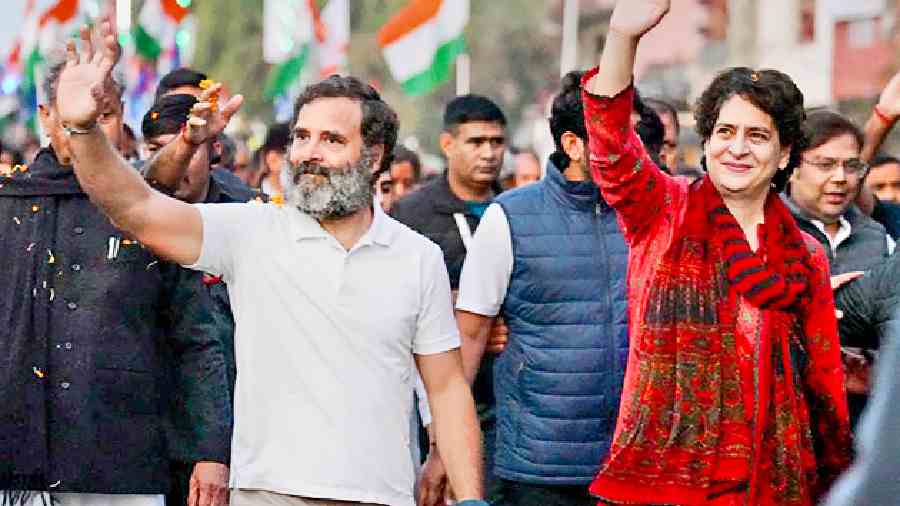The Bharat Jodo Yatra is to celebrate 100 days on Friday, with less than 800km of the daunting 3,570km remaining.
Rahul Gandhi has walked every inch of this arduous journey, disproving speculation about his commitment and devotion and compelling critics to acknowledge that his true persona had been clouded by propaganda.
Scores of people have joined the Yatra in every state, sharing their experience, explaining their problems and expressing solidarity with the cause of the mission.
While civil society members, activists and intelligentsia believe the Yatra has come as a ray of hope amid diminishing democracy in India, Congress leaders insist Rahul’s willingness to listen to the people’s voice had impressed them the most.
Having covered 41 districts in eight states over the last 97 days, the Bharat Jodo Yatra hasn’t encountered fatigue, lack of curiosity or interest among the people as was evident from the response of the crowd in Rajasthan’s Sawai Madhopur on Tuesday.
Congress communications chief Jairam Ramesh said: “We received an amazing reception in Kochi. The response was still better in Maharashtra’s Nanded and Shegaon and then Indore. We got massive crowds in Kota. What we saw today in Sawai Madhopur was amazing; over 60 per cent of people waiting before six in the morning were women.”
Monday was reserved for women, for the third time during the Yatra, and elected women representatives, activists, homemakers and students participated in huge numbers.
Giving details of the 100- day celebrations, Ramesh said Rahul would address a news conference in Dausa that day and all the Yatris would travel to Jaipur to attend a musical event by Sunidhi Chauhan and other singers.
The theme of the programme will be “Bharat Jodo”. The Yatra has become a moving carnival of constitutional principles and people’s interest, a kind of figurative merger of the political with the social and cultural.
Akhil Chaudhary, a lawyer who walked with Rahul on Monday along with fellow human rights activists, described the Yatra as a celebration of the constitutional values of fraternity, equality and justice. He said the country badly needed such an intervention at a time the situation had become so bad that one section of people felt happy when the rights of another section were trampled.
Mamata Bhupesh, a minister in the Rajasthan government, said: “Women were eager to share their experience with Rahulji. They explained how prices of cooking gas cylinders, oil and other essential commodities troubled them. There was also a strong endorsement of the motive to unite India. Ordinary people yearn to live in peace. There is a craving for social amity. People are fed up with communal politics.”
Congress MLA Divya Maderna said: “The Yatra has already become a people’s movement. Rahulji is working on a long-term strategy to bring women to the frontline of national leadership and that is visible in the Yatra too.”











